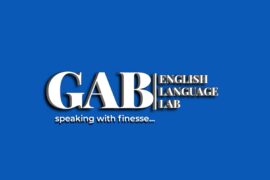Use of English; English in Use: an Uninterruptible Continuum
Ganiu Abisoye Bamgbose (GAB)
English is the most universally dispersed language in the universe. It is used by not less than thirty percent of the world literates as either first language (mother tongue), second language or foreign language. In Nigeria, English serves as the language of education, governance, commerce, journalism, legislation and very importantly, it serves as the language of upward mobility and social relevance.
This short article addresses the place of English among language scholars in countries where the language is used as second/official language. For the purpose of this essay, I conceive of Use of English as the ability to use the English language effectively in communication. This is in line with grammatical cum communicative competence; a knowledge of grammaticality and acceptability. On the other hand, English in Use is conceptualised in this piece as a scholarly cum linguistic enquiry which uses English as its medium. All of the aspects of linguistic studies which range from syntax, to phonology, semantics, discourse analysis, pragmatics, stylistics, semiotics, literary criticism and other technical areas of linguistics which deploy English and its usage as analytical tools are captured here as English in Use. The focus of this article however is to establish that knowing a language is knowing its rules and dynamics and knowing the rules and dynamics of a language is what it means to know a language.
An emerging but awful scenario among scholars of English in second language environments, especially the budding ones, is to hide under being a specialist in one or more aspects of English in Use and shy away from issues relating to the grammar and appropriate use of the English language. This article argues firmly that for everyone who is not a native language of the English language, the grammar of the language (which I have more elaborately captured in this essay as Use of English) is our primary constituency. A pragmatician, semantician, stylistician, semiotist, phonologist, and applied linguist cannot hide under any kind of specialisation to justify their incompetence in use of English.
It is particularly disappointing that language students, even at post graduate levels, are now being compelled to have their theses read by language editors and the question that readily comes to mind is: who should be language editors?
A renowned Nigerian phonologist, Dr Adesina Sunday, once said “I am a phonologist but I feed with grammar”. The English language is first a foreign language before being a second or official language. A mastery of it is therefore a prerequisite for scholarship in any academic field; most importantly linguistic studies.
This essay is therefore an appeal to everyone in the field of language in Nigeria and other second language countries to take grammar and Use of English as the core aspect of their scholarship. It will be unjustifiably preposterous for anyone in language studies to hide under any form of specialisation to display incompetence in the use of English.
*Mastering a foreign language such as English demands three things: interest in the language, a mastery of its rules and a constant usage*. It is therefore important for every scholar who works within the ambit of applied linguistics to work effortlessly to posses a mastery of the language as the proper usage of English is the bedrock of scholarship for everyone who works within the ambit of English linguistics, irrespective of a person’s specialisation.
Use of English is a necessary condition for studying English in Use by any second or foreign language scholar of English.
(c) 2018 Ganiu Abisoye Bamgbose
Doctoral Candidate of English, University of Ibadan

